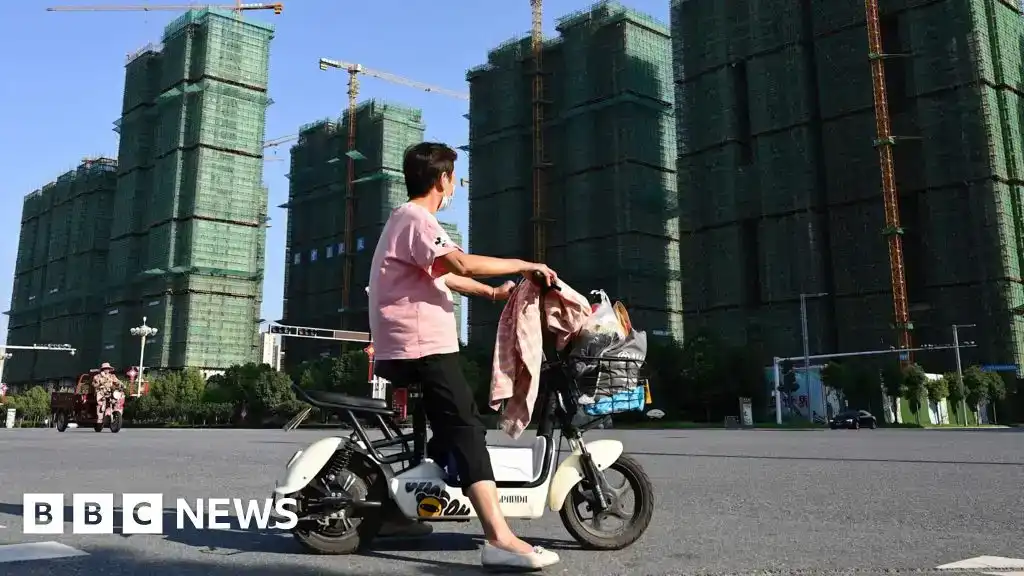- cross-posted to:
- world@lemmy.world
- cross-posted to:
- world@lemmy.world
Chinese property giant Evergrande’s shares were taken off the Hong Kong stock market on Monday after more than a decade and a half of trading.
It marks a grim milestone for what was once China’s biggest real estate firm, with a stock market valuation of more than $50bn (£37.1bn). That was before its spectacular collapse under the weight of the huge debts that had powered its meteoric rise.
Experts say the delisting was both inevitable and final.
This should be huge news, but I expect you’ll barely see a ripple. A company with $45b in debt is being foreclosed on. This should have all kinds of knock on effects.
- Banks in severe trouble because they won’t get their loans repaid.
- Property development industry slowdown.
- A significant hole in China’s GDP.
However I fully expect it to just disappear.
Trading in Evergreen was closed already 1½ year ago, when the company entered liquidation.
So the delisting was inevitable and is not really significant.Hong Kong High Court ordered the company to be wound up in January 2024.
Evergrande’s shares had been under threat of delisting ever since because they were suspended from trading after the court order.Wound up means liquidation.
But yes people and banks have absolutely lost money on this, but the ripple effect started already before the liquidation, it’s been going on for at least 2 years now.
But for a country of 1.3 billion people, $45 billion is only $35 per capita, so not something that will likely destroy an economy as big as Chinas.Here’s the thing, they can sweep this one under the rug but this is just a symptom. There will be more.
It’s been pretty much party line that they want this to happen for some time now. Pooh bear famously made this houses are for living in speech and directly wanted to knock out speculation. They do not want to be the West and define themselves by asset prices rising with no relationship to productivity. What the West would view as a major crisis then is the CCP’s intended effect. They specifically targeted these highly leveraged developers with the theory (correct in my opinion) that the loans themselves are what are driving this “growth” and it’s largely creating a situation of extraction that’s pricing out regular Chinese from housing. Even making noises in that direction would seriously spook Western housing prices.
I’m not sure I follow what you’re saying, but it sounds like…
The CCP plan was:
- Drive growth of megacorporation through massive loans
- Megacorporation builds properties
- Megacorporation has massive losses and defaults on loans
- profit???
Not really. What they identified was
- megacorp buys property
- megacorp takes loan based on property+development
- megacorp buys property
- land value increases due to all the property buying
- megacorp leverages the land value increase(now the loans are being driven by loans)
- property development becomes completely divorced from any actual need, instead becoming an investment vehicle
This is the financialized model that pretty much drives the western economy. China rightfully saw this as undesirable and put limits on how much developers could borrow based on assets. And this is the result. Realize that many of these loans were foreign investments.
Just my speculation but this policy might be a significant contributing factor to the growth of Chinese economy.
Rising prices of assets lock up money that would otherwise be used for more productive investment.



